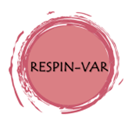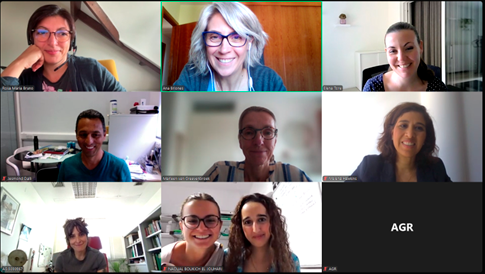Proyecto RESPIN-VAR
Proyecto RESPIN-VAR

Inflammation is part of our normal immune response, being important in preventing and fighting infections. However, an inflammatory response that is too strong or lasts too long can damage tissues. Normally, our body generates a counter-reaction that ensures that this inflammation stops in time: "the resolution of inflammation".
Resolution of inflammation ensures not only that the inflammation "just stops" but is also important for the repair of the tissue at the inflammation site. Studies in humans have shown that persistent, low-grade inflammation plays a role in causing damage to the heart and arteries. Anti-inflammatory medication can lower the risk, but inhibiting inflammatory responses throughout the body also compromises the beneficial effects of inflammation. Therefore, it is desirable not to focus so much on preventing inflammation, but especially on stimulating resolution, for restoring the balance in the tissues after damage.
The aim of RESPIN-VAR is to investigate in humans how important the resolution of inflammation is for the prevention and repair of cardiovascular damage. We will investigate whether a dietary supplement that stimulates resolution improves the function of vessels. We will involve future users of such supplements, to get ideas about the confidence they have in such supplements.
Press release
On 9th September, the consortia of the ERA4Health funded project CARDINNOV RESPIN-VAR met online for the kick-off meeting.

Members of the consortia. From the top left to right Rosa M. Bruno (APHP, France) Ana M. Briones (IdiPaz, Spain), Elena Tore (UM, The Netherlands), Jesmond Dalli (QMUL, UK), Marleen van Greevenbroek (UM), Malena Hawkins (Solutex, Spain), Ana B. García-Redondo (IdiPaz) and Irene Pastor and Naoual Boukich (IdiPaz).
About the call
The Partnership “Fostering a European Research Area for Health” (ERA4Health) aims at establishing a flexible and effective coordination between funding organisations in the European Research Area (ERA) for Health and Well-being. This Partnership brings the opportunity to increase European transnational collaborative research funding by creating a funding body for joint programming in priority areas addressing European Public Health Needs.
The specific CARDINNOV call: “Research targeting development of innovative therapeutic strategies in cardiovascular disease” aims to enable scientists in different countries to build a valuable collaboration on common interdisciplinary research projects based on complementarities and sharing of expertise in the field of cardiovascular disease treatments with a clear translational research approach.
About the project
Inflammation is part of our normal immune response, being important in preventing and fighting infections. However, an inflammatory response that is too strong or lasts too long can lead to tissue damage. Normally, our body generates a special counter-reaction that ensures that this inflammation stops in time: "the resolution of inflammation".
Resolution is a highly organised process involving many substances, termed Specialised Pro-resolving Mediators (SPMs). Experiments in animals show that boosting resolution can prevent various types of cardiovascular disease. In fact, it can improve various cardiovascular functions, even with existing cardiovascular disease. Despite these promising results, very little is currently known about the role of inflammation resolution in humans, nor about its effect in cardiovascular disease.
The overarching aim of RESPIN-VAR is to comprehensively investigate the contribution of resolution of inflammation to repair of vascular damage and the potential for resolution pharmacology in the human setting. Taking a multidisciplinary approach we will test the hypothesis that increasing levels of SPMs ameliorates vascular damage and stimulates repair in humans with a high cardiovascular risk. Using prospective human data we will show the potential involvement of SPMs in incident CVD (WP2), in a human intervention we will show the potential of SPMs to improve vascular function in high-risk individuals (WP3), using experimental models we will identify the involved molecular mechanisms (WP4), and through questionnaires and/or interviews with end-users we will explore the feasibility for utilisation of the knowledge obtained in RESPIN-VAR in human healthcare (WP5).
The project started in 2024 and will last for 3 years.
Project detail: https://era4health.eu/fp/detalleproject.php?conexion=22
About the team
The members of the consortium comprise an interdisciplinary team of epidemiologists, clinical pharmacologists, immunologists, basic researchers and an enterprise, with established basic and clinical knowledge of vascular damage and inflammation in general, and of the processes involved in resolution of inflammation in particular.
Marleen van Greevenbroek, Maastricht University (Maastricht, The Netherlands), is part of the management team of The Maastricht Study, with its prospective deep-phenotyping data and large biobank and will be the responsible for the epidemiological aspects of the project. Rosa-Maria Bruno, Assistance Publique-Hôpitaux de Paris (Paris, France), will be responsible for an intervention study with a nutritional supplement enriched in SPMs to evaluate effects in human vascular structure and function. Jesmond Dalli (Queen Mary University of London, UK) and his team will identify and quantify SPMs, precursors and metabolites in the biological samples from the project to identify biomarkers and look at pathway interactions. Malena Hawkins, from Solutex (Madrid, Spain) an omega-3 expert enterprise, will provide the SPMs enriched nutritional supplement to be tested in the intervention studies. The coordinator of RESPIN-VAR, Ana M. Briones, Instituto de Investigación Biomédica del Hospital La Paz (Madrid, Spain), and her team will focus in the immune and molecular aspects of the proposal. The team will be externally supported by several committees including renowned experts in the field as well as a patient representative and one expert in health communication sciences to assure involvement of key societal actors.
This project received funding from the Instituto de Salud Carlos III (ISCIII) (AC23_2/00044) under the umbrella of the Partnership Fostering a European Research Area for Health (ERA4Health) (GA Nº 101095426 of the EU Horizon Europe Research and Innovation Programme)
